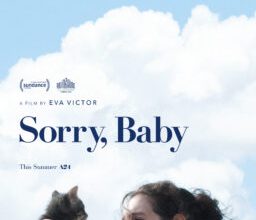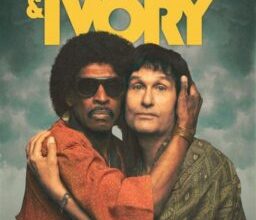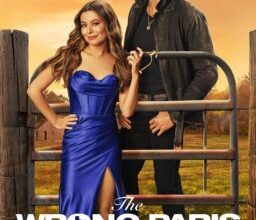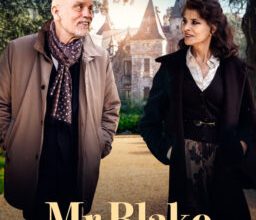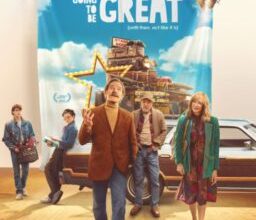The Roses
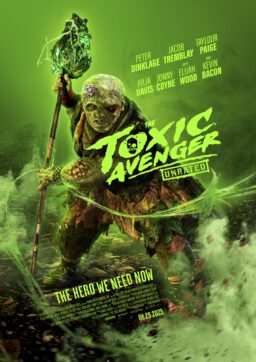
width: 380px;
margin: 0 20px 10px 0;
}
@media (max-width: 680px) {
.roger-post-inline-1 {
float: none !important;
}
#PostInlineVideoContainer {
width: 100%;
margin-left: auto;
margin-right: auto;
}
}
“The Roses,” about the disintegration of a marriage, can’t accurately be described as a black comedy because it’s afraid to get too dark. You can almost imagine the director, Jay Roach, looking out at the audience with one hand on a huge dial that reads “LIKABILITY” and turning it up as needed, to ensure that his main characters never seem irredeemable.
But what’s the point of making another adaptation of Warren Adler’s novel “The War of the Roses” if you’re not going to try to match or exceed the audacious 1989 film version? It wouldn’t be fair to compare this effort to Danny DeVito‘s at too great a length, because it isn’t a remake but another version. Let’s just say that it’s not a great one. DeVito’s film is rightly beloved by connoisseurs of razor-wire comedy that bloodies everybody, including the viewer, and it stays true to itself all the way to its spectacular and ghastly ending. This one only plays nasty, and it is dogged throughout by an issue that rarely afflicts stories about failing marriages: the lead actors have such chemistry, both physical and comedic, that you can’t believe they’d let the sun set on an argument.
Theo and Ivy Rose (Benedict Cumberbatch and Olivia Colman) are both creative. He’s a hotshot architect; she’s a gifted chef. They volley playful insults and clever observations at each other from the instant they meet in a restaurant kitchen where Ivy works. The dejected Theo has ducked in there to escape a business dinner where he learned that the only part of a construction project that mattered to him has been cut. Roach gives his stars one of those “love at first sight” scenes that are so hard to pull off that ninety percent of the time, you just have to take a movie’s word for it. Here, you believe it. Colman looks at Cumberbatch like he’s a steak and she’s a wolf that hasn’t eaten for three days. Cumberbatch’s awestruck expression says, “Go ahead. I’m delicious.”
The film arranges backstory and plot twists so that by the time the Roses go to war, we know their history as thoroughly as their attorneys do. When they were just starting out, Theo was the breadwinner. Ivy stayed at home, raising the kids and baking elaborate “iconic” desserts for the family. One such treat is an edible scale model of a nautical center that Theo designed, and that is about to open. However, what ought to be his first great triumph becomes a professional disaster so mortifying that it effectively ends his career. And at the same time, Ivy’s seafood restaurant We’ve Got Crabs, a gift from Theo in recognition of her loyalty and sacrifice, becomes a success, largely due to Theo’s misfortune.
Then the movie skips ahead three years. Theo is a fitness-and-discipline-focused stay-at-home dad to their son and daughter (played as young teens by Wells Rappaport and Hala Finley). Ivy is a culinary superstar who is profiled in magazines and adored by legendary chefs and she owns a chain of You’ve Got Crabs restaurants. Theo does a decent job of cheering his wife’s success, even though he feels as isolated and thwarted as Ivy did when he was the breadwinner. Ivy, meanwhile, feels unappreciated, perhaps resented, with good reason. For all his passion and intellect, Theo is an entitled man-child who requires more validation than Ivy did when the roles were reversed. At the same time, Ivy refuses to accept that focusing on her career guaranteed that the kids would bond more tightly to Theo than to her, and even accuses him of “stealing” “her” children.
“The Roses” loads most of the comedic ugliness into the final third, by which point the couple have done each other wrong so many times that they see their marriage as unsustainable and want a divorce. As in the novel and the first film version, the main asset being fought over is a beautiful house. Ivy funded the place, a lavish seaside home, at great expense, and gave Theo her blessing to build it according to his vision, only to watch him run up the budget with flourishes like Irish moss on the rooftops and a 15th-century dining table acquired from a Spanish monastery.
Colman might be the best screen actress in the English language at this moment, as well as one of the most sheerly enjoyable. Cumberbatch is a better romantic comedy actor than his rather glum, franchise-heavy filmography would seem to indicate. It’s a treat to see them playing roles where they get to be acerbic, smart, arrogant, and horny. Screenwriter Tony McNamara wrote “Poor Things” and “The Favourite” (which had an Oscar-winning lead role for Coleman). He’s great with sharp insults and hyper-analytical monologues encrusted with phrases the characters probably learned in therapy or a psychology class. (Theo answers one of Ivy’s leading questions with, “Yes—rhetorical and entrapment.”)
Roach is a director who can do stylish, clever compositions when it suits him, as demonstrated in his flamboyantly silly “Austin Powers” movies. But you wouldn’t know it from this film, which prizes information delivery over visual pizzazz to such a degree that it often feels more like a pilot for an HBO comedy series than something that can only be properly appreciated on a big screen. The needle-drops are dismayingly obvious, especially the use of “Love Hurts” in the marital death-spiral section, which is like putting Styx’s “Come Sail Away” over a montage of people in sailboats.
Andy Samberg and Kate McKinnon play the Roses’ best friends to diminishing returns. Samberg’s character mainly seems put upon, while McKinnon’s kooky deadpan and perpetual horniness are so sketch-comedy broad that they clash with Colman’s and Cumberbatch’s performances, which are so humanizing that they drain a lot of much-needed cruelty from the picture. At least McKinnon’s raunchy clowning sets up some hilariously underplayed “What is this strange creature, and why is it grinding against me?” reaction shots by Cumberbatch.
Colman and Cumberbatch are excellent actors, but not excellent enough to sell the idea that there’s something so profoundly wrong with this marriage that couples counseling can’t begin to repair it. The movie itself seems to realize this on some level. The tale begins in medias res, with Theo and Ivy in a counseling session where they’re asked to make lists of things they appreciate about each other, ticking off hilariously vague, grudging compliments before building to withering insults. Then they burst out laughing at their gift for invective, alarming the counselor, who doesn’t understand that the Roses flirt by seeing which one of them can go too far the fastest.
You can’t say that “The Roses” wimps out at the end. It doesn’t. It has a great ending. But it’s a great ending for a different movie about a different couple.
